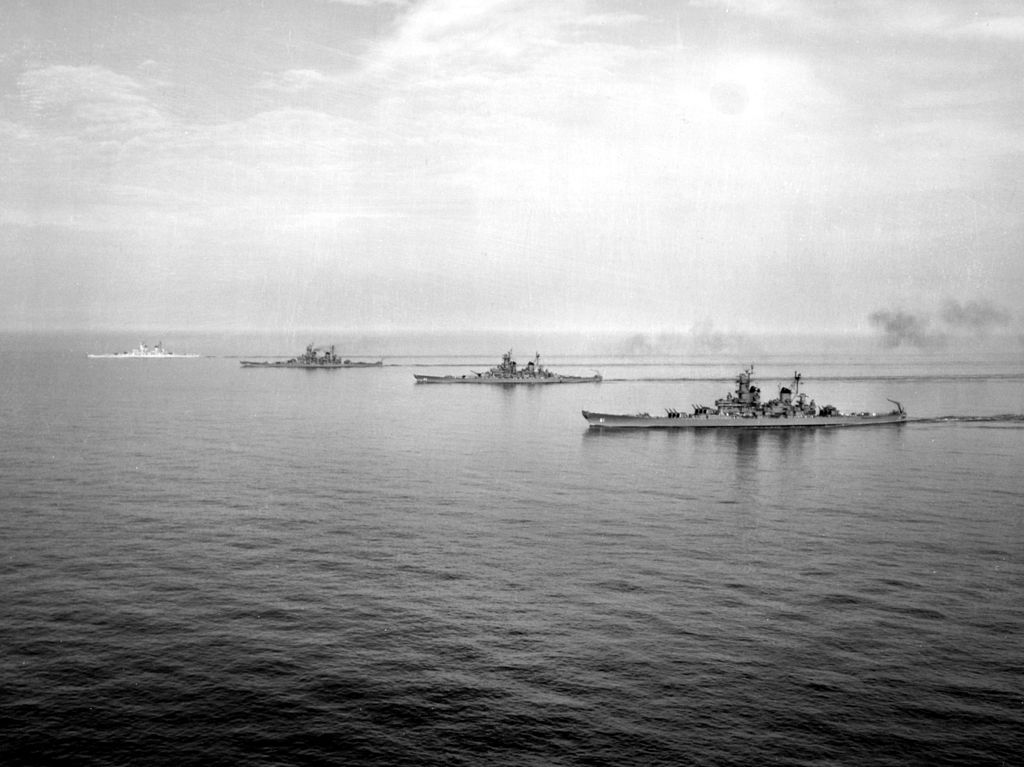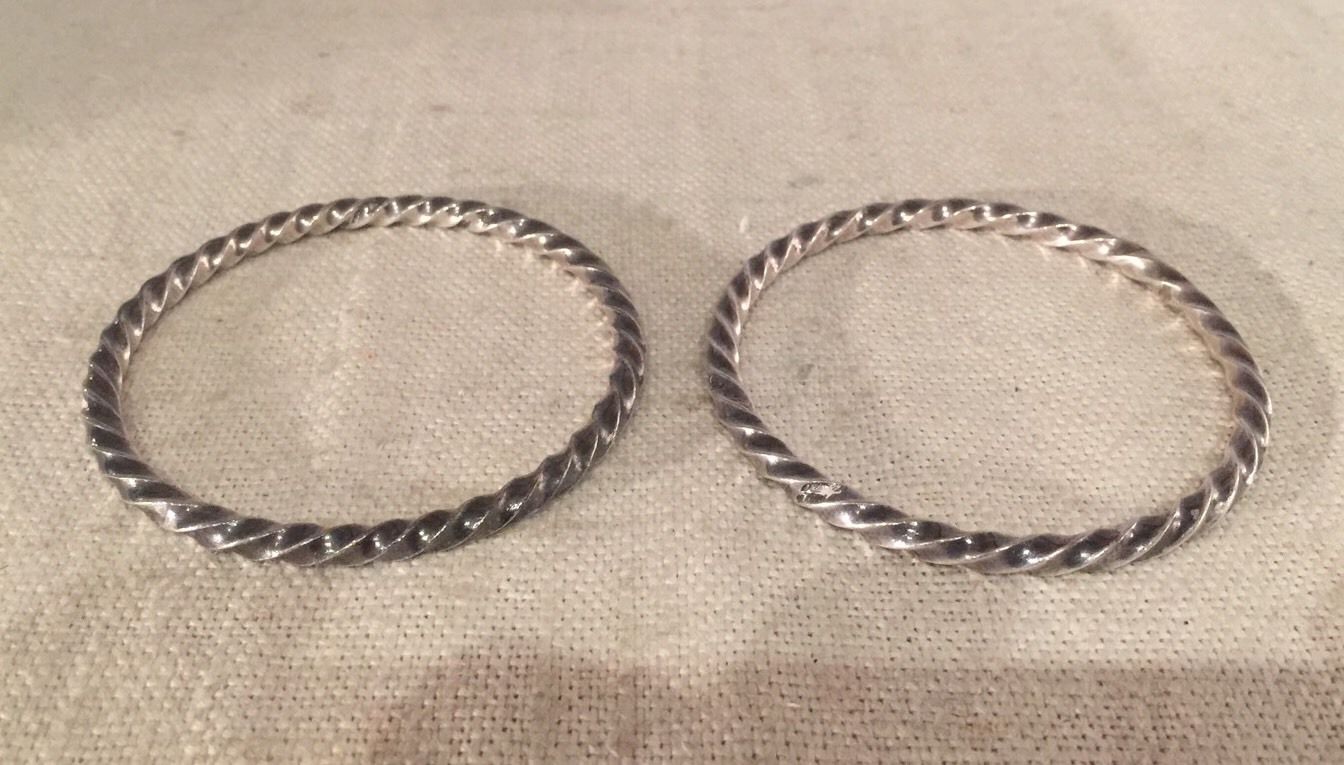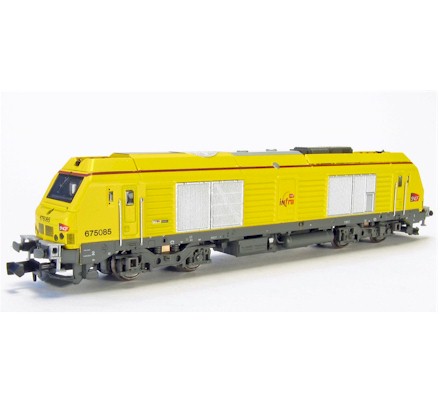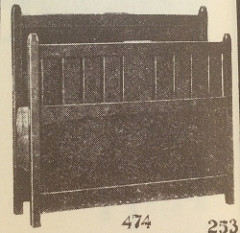History: The Iowa-class battleships were a class of fast battleships ordered by the United States Navy in 1939 and 1940 to escort the Fast Carrier Task Forces that would operate in the Pacific Theater of World War II. Four were completed; two more were laid down but canceled at war's end and scrapped. Like other third-generation American battleships, the Iowa class followed the design pattern set forth in the preceding North Carolina-class and South Dakota-class battleships, which emphasized speed and the secondary and anti-aircraft batteries.
Between the mid-1940s and the early 1990s, the Iowa-class battleships fought in four major U.S. wars. In World War II, they defended aircraft carriers and shelled Japanese positions. During the Korean War, the battleships provided seaborne artillery support for United Nations forces fighting North Korea, and in 1968, New Jersey shelled Viet Cong and Vietnam People's Army forces in the Vietnam War. All four were reactivated and armed with missiles during the 1980s as part of the 600-ship Navy initiative; during 1991's Operation Desert Storm, Missouri and Wisconsin fired missiles and 16-inch (406 mm) guns at Iraqi targets.
Costly to maintain, the battleships were decommissioned during the post-Cold War drawdown in the early 1990s. All four were initially removed from the Naval Vessel Register; however, the United States Congress compelled the Navy to reinstate two of them on the grounds that existing naval gunfire support would be inadequate for amphibious operations. This resulted in a lengthy debate over whether battleships should have a role in the modern navy. Ultimately, all four ships were stricken from the Naval Vessel Register and released for donation to non-profit organizations. With the transfer of Iowa in 2012, all four are part of various non-profit maritime museums across the U.S.
Between the mid-1940s and the early 1990s, the Iowa-class battleships fought in four major U.S. wars. In World War II, they defended aircraft carriers and shelled Japanese positions. During the Korean War, the battleships provided seaborne artillery support for United Nations forces fighting North Korea, and in 1968, New Jersey shelled Viet Cong and Vietnam People's Army forces in the Vietnam War. All four were reactivated and armed with missiles during the 1980s as part of the 600-ship Navy initiative; during 1991's Operation Desert Storm, Missouri and Wisconsin fired missiles and 16-inch (406 mm) guns at Iraqi targets.
Costly to maintain, the battleships were decommissioned during the post-Cold War drawdown in the early 1990s. All four were initially removed from the Naval Vessel Register; however, the United States Congress compelled the Navy to reinstate two of them on the grounds that existing naval gunfire support would be inadequate for amphibious operations. This resulted in a lengthy debate over whether battleships should have a role in the modern navy. Ultimately, all four ships were stricken from the Naval Vessel Register and released for donation to non-profit organizations. With the transfer of Iowa in 2012, all four are part of various non-profit maritime museums across the U.S.
Type: Battleship
Primary Country: The U.S. is a country of 50 states covering a vast swath of North America, with Alaska in the northwest and Hawaii extending the nation’s presence into the Pacific Ocean. Major Atlantic Coast cities are New York, a global finance and culture center, and capital Washington, DC. Midwestern metropolis Chicago is known for influential architecture and on the west coast, Los Angeles' Hollywood is famed for filmmaking.
Item Links: We found: 3 different collections associated with Iowa - Battleship
- Collection War at Sea: 2 different items.
- Collection Warship Classes: 2 different items.
- Collection Warships: 4 different items.
Item created by: Lethe on 2019-03-20 12:17:29. Last edited by gdm on 2019-03-25 09:37:45
If you see errors or missing data in this entry, please feel free to log in and edit it. Anyone with a Gmail account can log in instantly.
If you see errors or missing data in this entry, please feel free to log in and edit it. Anyone with a Gmail account can log in instantly.








